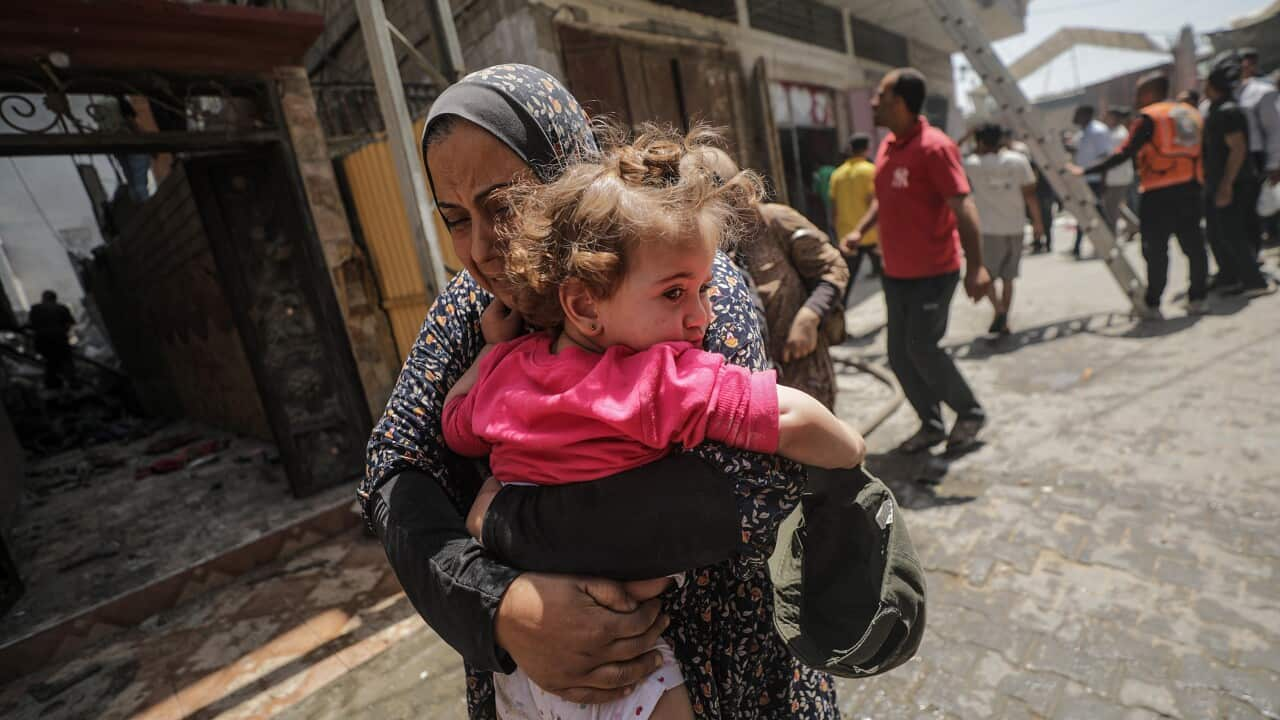After weeks of stop-start talks, Hamas has agreed to a three-phase ceasefire deal in its seven-month war with Israel.
It came just hours after in Gaza’s south, ahead of a planned ground offensive.
Here’s what we know about the latest Hamas-Israel ceasefire deal, and what happens now.
What’s the latest with the ceasefire deal?
Hamas agreed on Monday to the truce proposed by mediators Qatar and Egypt, but Israel said the terms did not meet its demands.
The United States, which has also played a mediation role in the talks, said it was studying the Hamas response and would discuss it with Middle East allies.
Any truce would be the first pause in fighting since , during which Hamas freed around half of the hostages taken during the group’s 7 October attack on Israel.
Since then, all efforts to reach a new truce have failed over Hamas’ refusal to free more hostages without a promise of a permanent end to the conflict, and Israel’s insistence that it would discuss only a temporary pause.
Israel has bombarded Gaza since Hamas’ 7 October attack in which more than 1,100 people were killed and over 200 hostages taken, according to the Israeli government.
More than 34,700 people, mostly women and children, have been killed in Gaza since 7 October, according to the health ministry in Gaza.
The 7 October attack was a significant escalation in the.
What are the three phases in the deal?
Based on details announced so far by Hamas officials and an official briefed on the talks, the deal that the Palestinian group said it had agreed to includes the following:
Phase one
- A 42-day ceasefire period
- Hamas releases 33 Israeli hostages in return for Israel releasing Palestinians from Israeli jails
- Israel partially withdraws troops from Gaza and allows free movement of Palestinians from south to north Gaza
Phase two
- Another 42-day ceasefire period that includes an agreement to restore a “sustainable calm” to Gaza, language that an official briefed on the talks said Hamas and Israel had agreed in order to take discussion of a “permanent ceasefire” off the table
- The complete withdrawal of most Israeli troops from Gaza
- Hamas releases Israeli reservists and some soldiers in return for Israel releasing Palestinians from jail
Phase three
- The completion of exchanging bodies and starting the implementation of reconstruction according to the plan overseen by Qatar, Egypt, and the United Nations
- Ending the complete blockade on the Gaza Strip.
What has Hamas said about the deal?
Taher Al-Nono, a Hamas official and adviser to the group’s chief Ismail Haniyeh, told the Reuters news agency the proposal met the group’s demands for reconstruction efforts in Gaza, return of displaced Palestinians and a swap of Israeli hostages for Palestinian prisoners in Israeli jails.
An official briefed on the ceasefire talks said Hamas agreed to the latest proposal that Israel had made on 27 April and there had been no major changes since then.
“What happens next depends on Israel to accept or reject Hamas’ response. The ball is in Israel’s court,” the source told Reuters, asking not to be identified because of the sensitivity of the matter.
Thousands of Palestinians were seen celebrating in various areas across the Gaza Strip on Monday evening, shortly after Hamas accepted a ceasefire proposal. Source: Getty / Anadolu
What has Israel said about the deal?
An Israeli official said that the truce Hamas agreed to was a “softened” version of an Egyptian proposal that included “far-reaching” conclusions that Israel could not accept.
“This would appear to be a ruse intended to make Israel look like the side refusing a deal,” said the Israeli official, who spoke on condition of anonymity.
Israeli Prime Minister Benjamin Netanyahu’s office said in a statement that while the truce proposal fell short of Israel’s demands, an Israeli delegation would be sent to meet with negotiators to try to reach an agreement.
“The war cabinet unanimously decided that Israel continue the operation in Rafah to exert military pressure on Hamas in order to advance the release of our hostages and the other goals of the war,” it added.
What happens now?
Qatar’s foreign ministry said its delegation will head to Cairo on Tuesday to resume indirect negotiations between Israel and Hamas.

